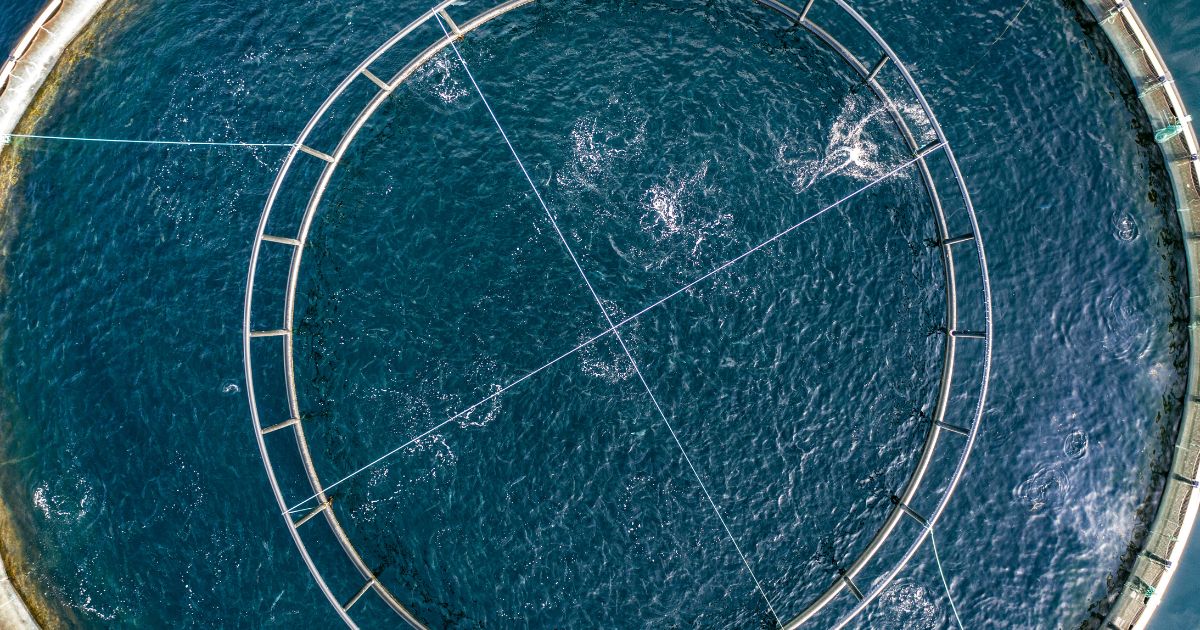Sustainable aquaculture: MARE researcher featured in Biosfera
A researcher from MARE participated in the Biosfera program, in an episode dedicated to aquaculture and the challenges of sustainable fish production in captivity. 
Ana Pombo, researcher at MARE/ARNET and professor of the Bachelor's Degree in Marine Biology and Master's Degree in Aquaculture at the Polytechnic Institute of Leiria, participated in the latest episode of the Biosfera program, broadcast on November 1, 2025, on RTP2. The episode, entitled “Aquaculture Put to the Test,” addressed the impacts of intensive fish farming and the role of scientific research in creating more sustainable solutions to feed a growing world population at a time when overfishing is already a problem.
Portugal ranks third among the largest fish consumers, with each Portuguese citizen estimated to consume an average of 56 kg of fish per year, more than double the European average. However, this marked dependence has environmental and economic costs. More than half of the fish consumed in the country is imported, often from countries where production is intensive and environmental regulations are more permissive.
Finding ways to make aquaculture more sustainable and with a smaller environmental footprint has become a priority for Ana Pombo. MARE-PLeiria was specifically mentioned in the program as a pioneer in the implementation of multitrophic systems in Portugal, which bring together several species with complementary functions in production tanks, making the system more productive and sustainable. “We have managed to create a much more balanced environment that is more similar to the natural ecosystem,” says Ana Pombo.
In the case of fish, food scraps and excrement accumulate at the bottom of the tanks and, if released into the natural environment, can cause eutrophication problems. However, he explains: “Fish waste is exactly what algae need to grow: nitrogen and phosphorus.” On the other hand, algae also help to produce oxygen and capture carbon, so by integrating the cultivation of these two species, the producer ultimately obtains two different products, making their production more sustainable, efficient, and environmentally friendly.
Although aquaculture can help in the recovery of natural populations, often threatened by overfishing, it is necessary to recognize that it is not possible to produce all species in captivity. “We don't domesticate all land animals either,” recalls Ana Pombo, explaining that, for example, in the case of lobsters and crayfish, there is too much cannibalism and, in the case of tuna, malformations occur because it is a very active species and bangs against structures, which makes production unfeasible.
Throughout the episode, issues related to the feeding of aquaculture fish, mercury contamination in wild fish, and the use of antibiotics in captive production were also addressed. In common, the testimonies emphasized the need to consume fish more consciously, valuing its origin, production conditions, associated ecological footprint, and ethical issues related to animal welfare.
MARE's presence in the program reflects the relevance of the work carried out by the center in enhancing marine ecosystems, highlighting its commitment to innovative solutions that promote more balanced, ethical, and sustainable aquaculture, capable of responding to the environmental and food challenges of the future.
Episode available HERE
Text by Joana Cardoso
